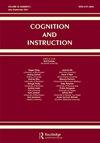Student-Led Organizing for Sustainability in Business
IF 2.6
1区 心理学
Q2 PSYCHOLOGY, EDUCATIONAL
引用次数: 4
Abstract
Abstract This article examines how Masters of Business Administration (MBA) students, at the height of the Occupy Wall Street movement (Occupy), strove to organize socially and environmentally sustainable business practices. We asked: what kinds of learning were supported through student-led organizing, and how? We designed a multi-sited case study that followed seven focal students across contexts as they engaged with an international student network focused on reorganizing for environmental and social sustainability. We drew on methods of ethnography and discourse analysis to detail the “how” of learning as part of student-led organizing for more sustainable business practices. We found that students were learning about changing forms of business and used their learning from conferences, protests, and experiences outside of the classroom to press for changes in the business school curriculum. Students were making visible for each other the knowledge infrastructure of the school and sought to change social and material practices that sustained it. Their work entailed individual actions to change class assignments and speak to professors about changes to business practices and collective efforts to change the way business schools incorporated environmental sustainability into every existing concentration. This case contributes to a growing body of literature on understanding what and how students in an elite network learn in tumultuous times and through collective efforts to resist structural injustice.学生领导的商业可持续发展组织
本文考察了工商管理硕士(MBA)学生在占领华尔街运动(Occupy)的高潮时期如何努力组织社会和环境可持续的商业实践。我们的问题是:什么样的学习是通过学生主导的组织来支持的,以及如何支持的?我们设计了一个多地点的案例研究,跟踪了七名重点学生,他们参与了一个国际学生网络,专注于环境和社会可持续性的重组。我们利用人种学和话语分析的方法来详细说明“如何”学习作为学生主导的组织的一部分,以实现更可持续的商业实践。我们发现,学生们正在学习不断变化的商业形式,并利用他们从会议、抗议活动和课堂外的经历中学到的知识,推动商学院课程的改革。学生们向彼此展示学校的知识基础设施,并寻求改变维持它的社会和物质实践。他们的工作包括采取个人行动,改变课堂作业,与教授讨论商业惯例的变化,以及集体努力,改变商学院将环境可持续性纳入每一个现有专业的方式。这个案例有助于越来越多的文献来理解精英网络中的学生在动荡时期以及通过集体努力抵制结构性不公正学习什么和如何学习。
本文章由计算机程序翻译,如有差异,请以英文原文为准。
求助全文
约1分钟内获得全文
求助全文
来源期刊

Cognition and Instruction
Multiple-
CiteScore
7.90
自引率
12.10%
发文量
22
期刊介绍:
Among education journals, Cognition and Instruction"s distinctive niche is rigorous study of foundational issues concerning the mental, socio-cultural, and mediational processes and conditions of learning and intellectual competence. For these purposes, both “cognition” and “instruction” must be interpreted broadly. The journal preferentially attends to the “how” of learning and intellectual practices. A balance of well-reasoned theory and careful and reflective empirical technique is typical.
 求助内容:
求助内容: 应助结果提醒方式:
应助结果提醒方式:


